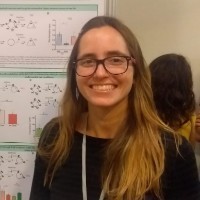Dementia and cognitive impairment can progress silently for years. Recent guidelines highlight the importance of preclinical/preventive intervention for their treatment. However, their gradualness escapes classical neurocognitive evaluations, complicating preclinical diagnosis. Current studies indicate that one of the first regions affected during Alzheimer’s disease (AD) is the anterior subhippocampal region. The interest in tasks that specifically recruit these regions is growing as they could prove particularly sensitive to the onset of neurodegeneration. In this line, tasks that require integrating multiple features of an object into a coherent representation in order to differentiate among similar stimuli (e.g., Memory Binding Task or Memory Discrimination Task) are useful for early detection of AD. Since aging is the most important non-genetic risk factor for AD and our research aims to distinguish normal cognitive decline from disease, we began by studying the sensitivity and specificity of memory performance changes to aging. We developed a novel Memory Differentiation Task (MDT) that integrates core features of the Binding and Differentiation Tasks. We found that performance in the similar (but not dissimilar) condition of this task correlates with performance on the Binding Task. Moreover, although memory differentiation is affected by aging, memory generalization is spared, suggesting that the MDT could be specifically sensitive to normal cognitive deterioration.
P#107
Development and testing of a novel Memory Discrimination Task for assessing cognitive deterioration in the elderly
Magdalena Miranda
- CABA,
- Argentina
- Magdalena Miranda ¹
- , Daniela Ramirez Butavand ¹
- , Agustina Birba ²
- , Sol Fittipaldi ²
- , Alejandro Ramos Usaj ¹
- , Adolfo García ²
- , Agustín Ibañez ²
- , Pedro Bekinschtein ¹
- 1 Laboratorio de Memoria y Cognición Molecular, Instituto de Neurociencia Cognitiva y Traslacional, CONICET-INECO-Universidad Favaloro
- 2 Universidad de San Andrés, Buenos Aires, Argentina

